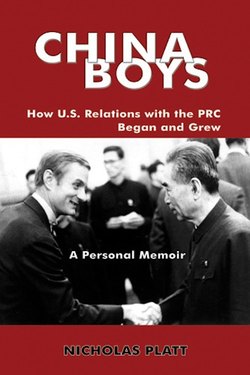Читать книгу CHINA BOYS: How U.S. Relations With the PRC Began and Grew. A Personal Memoir - Nicholas MD Platt - Страница 34
На сайте Литреса книга снята с продажи.
Turmoil in Hong Kong
ОглавлениеThe Cultural Revolution finally spread to Hong Kong during the summer of 1967, bringing with it labor unrest, serious riots, and mass demonstrations. Leftist agents sought to sow terror by putting lethal explosives into ordinary items, even toys. Our upscale neighborhood was not spared. One morning we awoke to find a bomb squad outside our window, in full armor, gingerly inspecting a suspicious object in the middle of Old Peak Road. It was Sheila’s handbag, left there by a cat burglar, who had shinnied up the pipes outside our bathroom and taken the purse without disturbing our sleep.
In a June 1967 letter home, I described what was going on, as follows:
The situation now is quite favorable to our side. The communists are essentially weak, and have been forced to try to save face by showing what strength they have through a series of token strikes, each of which affects the ordinary citizen whose support they seek much more than the “imperialists” they are trying to protest against. They have threatened food, water, electricity, and gas supplies, and stopped ferry and transport services, not in any case long enough to cause lasting disruption, but just long enough to make everyone cross. It’s a stupid performance, which reflects clearly the lack of direction across the border. I was taught to respect the organizational ability of the communists (and still do as a sensible hedge to all bets), but thus far it’s the other tiger that turns out to be paper.
The local government, for its part, despite a few tactical blunders, has performed far better than any longtime observers of its pukka bumblings in the past would ever have dared hope. The younger officials, many of whom are in responsible jobs because their bosses are on leave, have risen to the occasion and delighted everyone by fighting the communists with their own weapons, propaganda campaigns, poster wars, etc., all with good effect. The governor turns out under his sun helmet and ostrich feathers to be a sound and unflappable man. At bottom, it has been the cops who held the key, managing through good training and self-control to deny to the communists the martyr and the emotional issue they were looking for. . . .
Across the border the Cultural Revolution has ground to a halt with the basic issue becoming not whether Mao can impress his antediluvian ideology on the Chinese people, but whether the government in Peking can extend its influence in the provinces sufficiently to restore order and maintain economic production. I think they probably can, but at a cost of almost everything the old man has sought to achieve. When they finish up––God knows when that will be––they will probably be back roughly where they started, with much of the old Party apparatus intact and society galloping towards Russian-style revisionism even faster than before.
In the meantime, the Chinese appear to have lost the respect they had for what once was a pretty effective government. Some of the legendary discipline is gone––streets are dirty, people are beginning to steal things in a minor way, mass calisthenics are skipped, and once automatic response to mass appeals to rush out and do things like kill sparrows is no longer taken for granted. Organizations are fighting in the streets and in the communes for political power in battles so confused that even local residents don’t know which side is which. The only answer is tough army sanctions, which I suspect are soon to be imposed. The net result of such sanctions, however, to judge by the happenings of February and March when the army cracked down briefly, will be “Fascist atrocities” that make Hong Kong look like a teddy bear’s picnic. And where will it leave the “great Red Sun in our Hearts,” Chairman Mao? In charge of a garrison state as far removed from communist Nirvana as any you can find.
